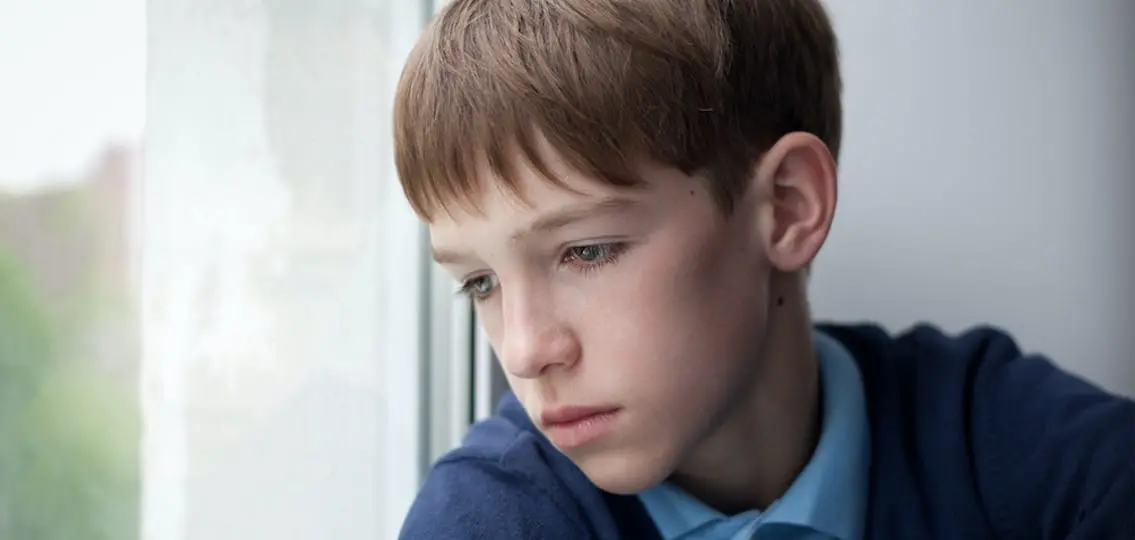Lily is 14, a straight A student, plays varsity soccer, and volunteers with her church. She’s been irritable this past year, and she doesn’t ever really seem happy. She used to be a very cheerful kid. Is this just part of being a teenager?

Eric is 17 and star sprinter on the track team. He just received a full scholarship to a prestigious university, but he doesn’t seem as excited as he should be. He gets so angry sometimes. But that’s just stress, right?
Sonya is 16, has decent grades, but they’re not as good as they used to be. She has a part-time job and a serious boyfriend. She complains about being tired and is extremely negative, but maybe that’s just her personality now.
Persistent Depressive Disorder Symptoms
What do these teens have in common? They all may have chronic depression. In the newest version of the DSM-5 mental health diagnostic guide, chronic low-level depression is called Persistent Depressive Disorder (PDD). PDD has less intense symptoms than Major Depressive Disorder (MDD), and the symptoms are not always obvious. Mental health professionals tend to under-diagnose and under-treat PDD because it’s easier to miss or misinterpret the signs.
Elizabeth Jorgensen, CADC, Director of Insight Counseling in Ridgefield CT, has seen many teens diagnosed with PDD. She cautions parents to be alert to chronic depression masquerading as irritability: “Often teens can be nasty and irritable, but they’re really suffering. You have to dig a little deeper.”
Why It’s Difficult To See Signs of Chronic Depression In Teens:
- Teens are masters at hiding their inner selves.
- Dismissal: Symptoms can seem like normal teen stuff. For example, for teens like Sonya, Eric, and Lily, their moods can be dismissed as typical teenage behavior–irritable, disinterested, and sometimes angry.
- Adolescence is a developmental stage that includes a lot of change. This makes it hard to distinguish normal change from developing mental health problems.
- Pediatricians and family doctors aren’t always well trained in assessing depression.
- Your teen may not be talking about it because:
- They don’t have the emotional language to describe their experience
- Their need for independence can mean sharing less with parents
- They may be ashamed about feeling depressed. There is a cultural stigma that stops open discussion of mental health problems.
- They may feel hopeless and figure “Why tell anyone? This is just how it is.” Depression often chips away at hope.
There is no depression thermometer or blood test. So, how do you know when something is wrong?
Signs When Something Is Wrong
There are a range of warning signs. According to The Child Mind Institute: “For a child to be diagnosed with persistent depressive disorder, she must exhibit a depressed mood or irritability most of the day for at least one year. In addition, she must have at least two of the following symptoms, to the point where they cause her distress or interfere with her ability to function well at home, in school, or in other areas of daily life: poor appetite or overeating, trouble sleeping, persistent tiredness or lack of energy, low self-esteem, hopelessness, trouble concentrating and difficulty making decisions.”
As I write this, I worry that every parent of a teen will decide their teen is depressed, because almost every teen has some of these warning signs. Irritability? Sure, what parent has not been snapped at by a grouchy teen?
There’s no perfect formula for figuring this out, and it’s not your job as a parent to make a diagnosis. You are on the front line, you see the day-to-day life of your teen, and your observations are invaluable. You know your teen’s baseline and you know when big changes are happening. Your job is to stay connected to your teen, pay attention to their behavior, and seek help when you’re concerned.
Early Intervention
The research on teenage depression treatment gives us good news about early intervention: the earlier depression (PDD or MDD) is identified and treated, the better the outcomes. Undiagnosed and untreated depression can have a long-term impact on self-image, resilience and independence, and may lead to more serious conditions.
If you’re concerned your teen may have PDD, start with an assessment by your pediatrician or a qualified mental health professional. This should include a physical to rule out any medical cause for the symptoms. An accurate diagnosis should lead the way to deeper understanding and good evidence-based treatment.

Depression in teens is an illness that can be treated. You can’t make your child feel a certain way, but you can help your teen get on the road to recovery so that they can find their own hope and happiness.
Laura Cleary, LMSW is a social worker, parent coach, blogger, and mom to three young adult children. To find out more about her and her support and education services for parents of 12-25 year olds, visit lauraclearyparentcoach.com
Crisis:
National Suicide Prevention Lifeline: 1-800-273-8255
Crisis Text Line: Text HOME to 741741 for 24/7 crisis support in the U.S.




